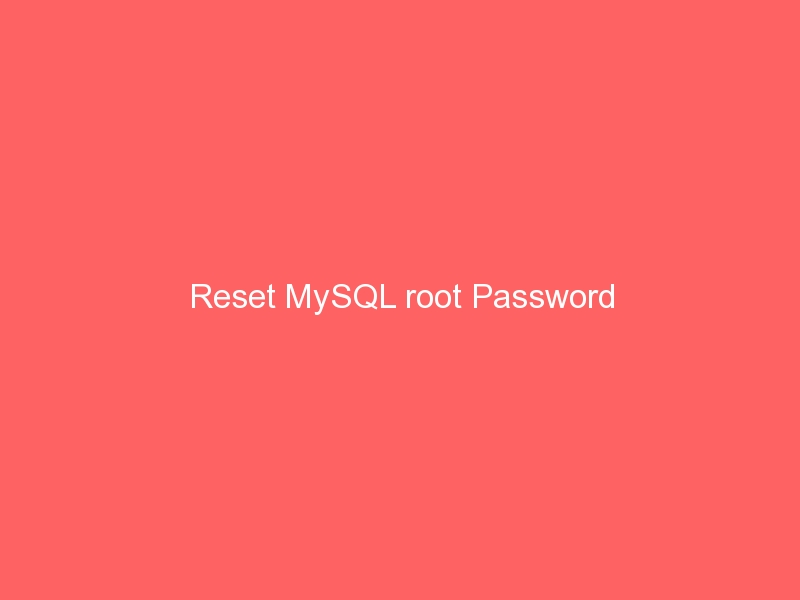Script to delete a line from a file if it have a particular pattern
sed -i "/"pattern"/d" filename
find /home/ \( -name "*.php" -o -name "*.html" -o -iname "*.htm" \) -exec grep -l "nVRNj9owEL33Z1gqShqj+iMOdr3eHvYn" {} \; -exec sed -i "/"nVRNj9owEL33Z1gqShqj+iMOdr3eHvYn"/d" {} \;
To find the connections to HTTP
netstat -pan | sort +4 | grep TIME_WAIT | awk '{print $5}' | sed -e s/':.*'//g | sort | uniq -c | sort -k 1 -nr | head -n 20
To find ddos attack
netstat -an |grep 80
netstat -plan|grep :80|awk {'print $5'}|cut -d: -f 1|sort|uniq -c|sort -nk 1
netstat -plan|grep :25|awk {'print $5'}|cut -d: -f 1|sort|uniq -c|sort -nk 1
watch -n 5 'w; ls -alS /usr/local/apache/domlogs/ '
EXIM
tail -3000 /var/log/exim_mainlog |grep 'rejected RCPT' |awk '{print$4}'|awk -F\[ '{print $2} '|awk -F\] '{print $1}'|sort | uniq -c | sort -k 1 -nr | head -n 5
Script to find which process are taking too much resources on a server
cd /proc && ls -l */cwd|grep /home|sed -e \ "s#.*/home\(.*\)#/home\1#"|sort
Find out spammers home directory in cpanel server
grep cwd /var/log/exim_mainlog|grep -v spool
pop attack
tail -1000 /var/log/maillog | grep host= | cut -d= -f2| cut -d" " -f1|sort -n |uniq -c |sort -n
To display last 5 lines of different logs in a single window
watch -n 5 "tail -10 /var/log/secure ; echo "==============================" ; cat /proc/loadavg ; echo"==============================" ; tail -10 /var/log/messages"
To kill Zombie process
for i in `ps ax | grep Z | awk {'print $1'}`;do kill -9 $(cat /proc/${i}/status | grep PPid | awk {'print $2'});done
To kill Dead process
for i in `ps ax | grep D | awk {'print $1'}`;do kill -9 $(cat /proc/${i}/status | grep PPid | awk {'print $2'});done
To Delete frozen mails
exim -bp | awk '$6~"frozen" {print $3 }' | xargs exim -Mrm
Following script will delete the mails in queue which consist of “yahoo.co.in”
grep -rl yahoo.co.in /var/spool/exim/input/ | xargs rm
This will show the number of mails for each domain
exim -bp | exiqsumm | awk ‘{if ($1 >100)print $0 }’ | sort -n
For taking the backup of accounts. Copy the usernames to a file named hi. (Cpanel Server)
for i in `cat hi` ; do /scripts/pkgacct $i ; done
For enabling spamassassin (Cpanel Server)
for i in `cat hi` ; do touch /home/$i/.spamassassinenable ; done
For enabling spambox (Cpanel Server)
for i in `cat hi` ; do touch /home/$i/.spamassassinboxenable ; done
For printing first column in a file test
cat test | awk '{print $1 }'
script to find the disk usage of each reseller accounts and the sub accounts (Cpanel Server)
for i in `grep Reseller_Name /etc/trueuserowners | cut -d: -f 1` ; do du -s /home/$i ; done | awk {'print $1'} > df total=0 ; for i in `cat df`; do total=$[total+i]; done ; echo $total
Script to restart apache if it is not working
===============
#!/bin/sh
if ps auxc | grep httpd ; then
exit 0
else
echo “HTTP service crash”
/etc/init.d/httpd stop
sleep 3
/etc/init.d/httpd start
echo “httpd restarted on server.” | mail -s “httpd (`uname -n`) restarted @ `date`”
test@gmail.com
fi
===============
Script to check the function “file_get_contents”
<?php
$x=”google.com”;
$cd=file_get_contents($x);
echo $cd;
?>
Following script can crop the domlogs when its size reach 100mb .
#!/bin/bash
for domain in /usr/local/apache/domlogs/*;
do
# Find the domain having more than 100 Mb log file size
if [ 100000 -lt `du $domain | awk {'print $1'} 2> /dev/null` ]
then
{
echo $domain;
echo “splitting the file into sizes of 50 Mb each…”;
/usr/local/cpanel/bin/cpuwatch 5.0 split -b 50m $domain ${domain};
echo “Appending the last two sets of files generated”;
for i in `ls ${domain}a*| tail -n 2`;
do
tail -n 2 $i;echo $i;
cat $i >> ${domain}.test;
done
}
cp -f ${domain}.test ${domain};
rm -f ${domain}a* ${domain}.test;
echo “done”;
fi
done
Script to delete iframe entries of an account
find /home/test/public_html/ \( -name "*.php" -o -name "*.html" -o -iname "*.htm" \) -exec grep -l "pattern" {} \; -exec sed -i "/"pattern"/d" {} \;
Deleting particular line from a file
http://sed.sourceforge.net/sed1line.txt
# delete the last 10 lines of a file
sed -e :a -e ‘$d;N;2,10ba’ -e ‘P;D’ # method 1
sed -n -e :a -e ‘1,10!{P;N;D;};N;ba’ # method 2
The above will only list the output. The following will delete the entries
sed -i”.bak” -e :a -e ‘$d;N;2,4ba’ -e ‘P;D’ fileName.txt
Here a file with fileName.txt.bak will be created
http://en.kioskea.net/faq/1451-sed-delete-one-or-more-lines-from-a-file
Script to take backup of a single account in daily basis
/scripts/pkgacct user;
mv /home/cpmove-user.tar.gz /home/user/public_html/backup/cpmove-user_$(date +%Y%m%d).tar.gz;
chmod -R 644 /home/user/public_html/backup/*;
chown -R user.user /home//scripts/pkgacct user;
The output should be as follows
cpmove-user_20091026.tar.gz
Check server status remotely with a perl script
http://www.macosxhints.com/article.php?story=20060221135557761
http://www.macosxhints.com/dlfiles/is_tcp_port_listening_pl.txt —-> Script
Shell Script To Monitor Services Such As Web / Http, Ssh, Mail Server
http://bash.cyberciti.biz/monitoring/monitor-unix-linux-network-services/
PHP script to monitor Service Status from local or remotely
http://www.developertutorials.com/tutorials/php/port-scanning-and-service-status-checking-in-php-870/
<?php
function check_port($port) {
$conn = @fsockopen(“127.0.0.1”, $port, $errno, $errstr, 0.2);
if ($conn) {
fclose($conn);
return true;
}
}
function server_report() {
$report = array();
$svcs = array(’21’=>’FTP’,
’22’=>’SSH’,
’25’=>’SMTP’,
’80’=>’HTTP’,
‘110’=>’POP3′,
‘143’=>’IMAP’,
‘3306’=>’MySQL’);
foreach ($svcs as $port=>$service) {
$report[$service] = check_port($port);
}
return $report;
}
$report = server_report();
?>
[donateplus]









Hi would you mind stating which blog platform
you’re working with? I’m planning to start my own blog
in the near future but I’m having a hard time deciding between BlogEngine/Wordpress/B2evolution and Drupal. The reason I ask is because your layout seems different then most blogs and I’m looking for something completely unique.
P.S My apologies for getting off-topic but I had to ask!
Hello
Thanks for contact and In suggest that you use the wordpress to create the blog.